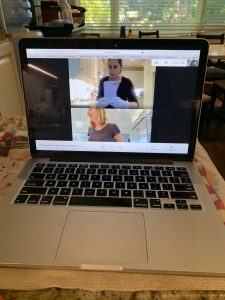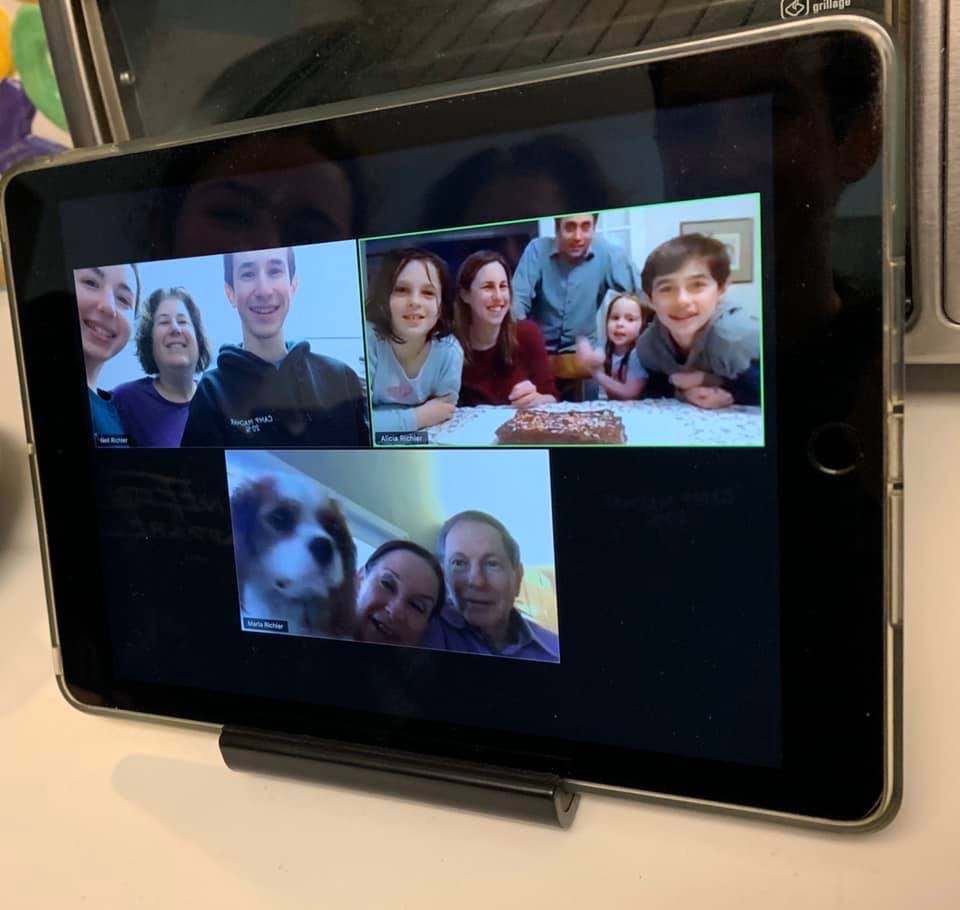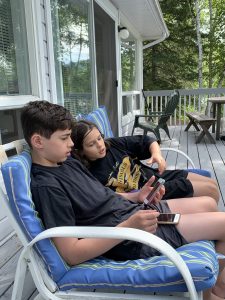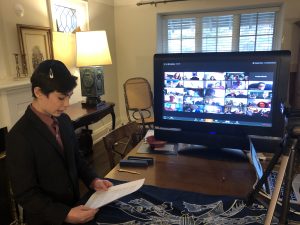Kinetic Motions is the place where I share my musings. My life is busy, and often stressful, and writing here is cathartic for me. I think about so much, and I am blessed to have the opportunity to write about how I feel. Sometimes the journalist in me just wants to ask questions and seek those answers by writing. Today is one of those days. I want to ask a question that at first seems so simple but is actually quite complex and a bit terrifying to even ask: how does one search and secure a job in today’s world?
Many of you, instead of having a quick and easy answer for me, are probably going to ask a question right back to me: Alicia, are you looking for a job right now? My answer: I am lucky to not just be employed right now but to have a great job at a great company. I’m treated well and respected, and I work with some of the most talented people. The question I posed is not about me. I ask it, for the most part, in general, and it’s not the first time this question has irked me and caused me tremendous anxiety.
Searching for a job, in particular when one is unemployed, is one of the greatest challenges that any person faces. There are any number of reasons why you must find that new job, no matter how smart, talented or experienced you are. Company reorganization Bankruptcy. Mass layoffs. Your company is bought by another. I could go on and on. This has happened to so many of us over the span of our careers.
Everyone around you can say, hey it’s not your fault. You will be scooped up by someone great soon. But when is soon? How will I find someone great to hire me? How will that person know that I’m great too? Where do I begin? How do I put myself out there? Where do I search? Who do I talk to? What should I include on my resume? Do I delete the stuff from 20 years ago? How do I get noticed?
I could fill the page with the hundreds of questions that go through the mind of a person who is searching for a new job. I’ve been there. It’s awful. And depressing. You feel that all your skills and talents that were so valued at your previous employer don’t matter. Each day seems so long, and waiting for an email response or phone call back is interminable.
All the power is in the hands of the people doing the hiring. Whether it’s a recruiter or an HR team or a hiring manager, ultimately it is their choice. It has to be, of course. If you imagine a set of scales, the weight of power is clearly on the side of the person doing the hiring. But why is it so weighted? Why does the person who is looking for a job feel weightless and often powerless? I will ask my same question again: how does one search and secure a job in today’s world?
I understand that we are in the middle of a global pandemic right now. There is higher unemployment and some very smart and skilled people are looking for work. Competition is greater than ever, and like everything in the world, the hiring process had to adapt. But there are still some fundamental elements to the job “search and secure” process that I do not understand. I don’t know if there are easy answers to my questions but I hope this can start a discussion.
Before I ask my next set of questions, I want to turn this piece from general to personal. My husband is searching for work right now. He is a licensed, Professional Engineer with years of experience. Like so many of us, his career hasn’t followed a straight line. His areas of focus have changed over time. Fundamentally, he is one of the smartest people I have ever met. He’s a problem solver, and the harder the challenge in front of him, the more determined he is to solve it. Anyone who has worked with him knows that he’s not shy to seek help when he needs it and produces quality, detailed results.
A couple of years ago he brought together his years of experience from various jobs and started his own consulting business called Adaptor Analytix. He actively sought short and long-term contracts and was very successful at doing so. But then the world faced a global pandemic, and his most recent contract suddenly ended a few weeks ago. What seemed easy last year – to secure a new contract – became impossible.
What you plan for doesn’t always happen, and you may face variables that are out of your control. That’s the case when one wants – and needs to “search and secure” a job. Or contract. Or any other kind of employment. My husband had an open mind a few weeks ago when he started his most recent search. He applied to postings online, spoke with recruiters, connected with people in his network. The early conversations are always positive and hopeful. But through no fault of his – or his many wonderful contacts who have been so kind – most paths have led to a dead end.
So, back to my next set of questions. Is there a formula? Are there do’s and don’ts? Do you email the person who interviewed you? And if so, when? What do you say? Do you call them if you don’t hear back? And speaking of which, if someone interviews me, why don’t they email or call me, no matter what? Is it normal to be interviewed by a company two or three times then never hear back? How do you get noticed amongst a pile of 200 resumes? Does knowing someone inside help? What’s a reasonable amount of time to wait before you just give up on what you thought was a real spark but whose potential flame is just smouldering?
A hiring manager is a busy person. I know this – I’ve been that person too! You have to do your busy, full-time job, and in between find the time and headspace to read resumes, interview candidates and make decisions. You fit this in when you can, and it can take weeks, or sometimes months. Even if you know you need to fill that position soon, you perceive time differently than the person who wants that job you posted. Waiting a day or a week for that call back from the hiring manager is emotionally draining and painful.
Every hour that goes by, the person looking to secure a job questions themselves, their behavior and their actions. Did I say the right (or wrong) things in my interview? Should I have sent a thank you email the day before? Should I have told the hiring manager about that story? How do I follow up? Which is more important to this person – my skills and experience, or my personality and how I’d fit on the team?
I admit I am feeling anxious as I write. This post is quite different than my gentle musings of the last few weeks. I am watching my spouse feeling despaired and more vulnerable than ever, and I just want to help him. I guess I’m desperate for some insights into this process. I know that there are no easy answers. There is no simple single path to the search and secure process in the job market. But maybe writing about it, asking the questions, will get us talking. I am naturally an optimist, and I know that good things are just around the corner for my husband – and so many other people searching for that next great opportunity.









